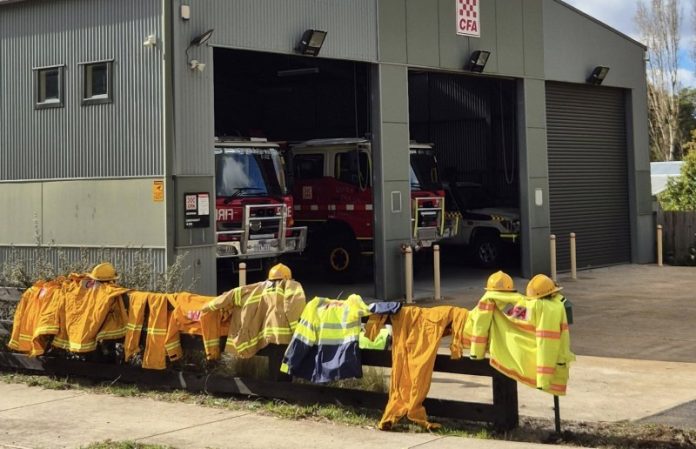
ESVF tax going to hurt
The Victorian Government’s controversial Emergency Services and Volunteers Fund passed parliament last week despite heavy objection from CFA volunteers, farmers and rural councils.
The more expensive ESVF tax replaces the Fire Services Levy and will be charged alongside council rates from July 1.
While the tax helps fund vital emergency services, those facing the biggest cost increases are farmers and only emergency service volunteers who have served a conditional 12 months are eligible for a rebate.
Baynton farmer Gerard Ryan said the tax was “both inequitable and an insult to farmers, CFA volunteers and regional communities”.
“The rates of the levy bear no relationship to services provided and will in effect drain money from the regions to the city,” he said.
“As a farmer, the levy is equivalent to a Trump tariff of 10 per cent before anything is produced, leaving us less competitive in export markets. To consumers, it is a tax on food. The levy hike is imposed at time of drought and tough trading conditions.”
Like many farmers and large property owners, Mr Ryan is also a CFA volunteer, and has been a member for 50 years.
“I do not want to be paid, that is not volunteering, I do it for other reasons,” he said.
“The offer of rebates for service will create an insidious precedent. What CFA volunteers want is for the funds to be spent efficiently on frontline equipment.”
Local volunteer fire brigades have been fighting back against the tax’s introduction. Now they say they have been “hung out to dry” and many have hung out their overalls and gear in a display of dispirit.
Newham Fire Brigade’s trucks are among those that have sent a message loud and clear that the tax does not have their support.
Volunteer firefighters and some tankers from the Macedon Ranges will attend a rally in Melbourne today against the levy.
NEW CHANGE ENOUGH?
Speaking to the ESFV Levy last Friday, Minister for Emergency Services Vicki Ward said “this new funding model is giving emergency service workers and volunteers the modern equipment they need to help keep communities safe”.
At that time, the state government issued a statement that said it had made some changes after consultation with councils, emergency services and the Victorian Farmers Federation.
That change includes reducing the variable rate for primary production land from 83c/$1000 Capital Improved Value to 71.8c/$1000 CIV – reducing the liability payable by farmers.
The state government said it would guarantee in legislation that 95 per cent of VICSES and CFA funding would come from ESVF and 90 per cent of FRV’s annual funding would come from the levy. It will also “legislate to make it clear that every single dollar collected from the levy must be spent on emergency services”.
Annual reporting will be made on how much money has been collected by the ESVF and how that money is spent.
The state will “commit to working on an implementation package for local councils, including funding for the Municipal Association of Victoria” and provide partial rebates of the ESVF for farmers eligible for the infrastructure grants program in the government’s drought support package.
Mount Alexander Shire Council and Macedon Ranges Shire Council were among the local councils to speak out early against the ESVP. MRSC expressed it still had concerns.
“SIGNIFICANT IMPACT”
Mayor Dom Bonanno said the ESVF Levy would have a “significant negative financial impact” on the Macedon Ranges community, in particular the farming and business sectors.
He said the council was “very disappointed” the ESVF passed through parliament “in a rushed way and without a full assessment being undertaken of its impacts on rural and regional communities and local government areas”.
“Council acknowledges the late inclusion of a small reduction to the variable rate for primary production land, however, it will have a minimal positive impact on the sector and on average would still deliver an average increase of more than 130 per cent (or about $1640 per property) in the Macedon Ranges,” he said.
“As a result of the ESFV Levy, our commercial and industrial businesses in the Macedon Ranges will experience an average increase of 75 per cent (or $726) and 49 per cent (or $440) per assessment respectively, and the average residential property owner can also expect to see the Victorian Government collect an additional 41 per cent (or $86) from them.
“In addition to the significant increases that most sectors of our community will experience from the introduction of the new ESVF Levy, we expect there will be a substantial additional burden on council administration in managing – and enforcing – this new process.
“Many of these changes will lead to additional costs being incurred by council, with the impact further borne by ratepayers in the form of reduced available funds to do council’s own work.”
Cr Bonanno said Victoria’s farmers were “already hurting” and another 11 local government areas were added to the On-Farm Drought Infrastructure Grant Program on Thursday due to the ongoing dry conditions.
“Unfortunately, Loddon Campaspe LGAs like the Macedon Ranges have not yet been included in that drought support, but our farmers remain under significant pressure due to those ongoing dry conditions,” he said.
The council encouraged Agriculture Victoria to assess the dry conditions throughout the Macedon Ranges and make the necessary declarations as soon as possible.








